High Tea: India is rediscovering its love affair with chai
Rustic walls, hipster-like décor and a community table are elements that could define any modern café in the city. One is sure to spot corporate-types huddled over a PowerPoint presentation on one table; and college students catching up on another.
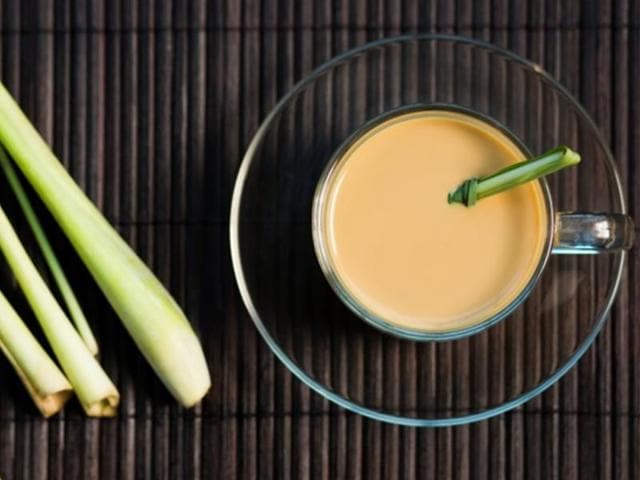
But take a closer look. Jostling for space alongside the white cardboard cup (often with a misspelled version of your name) is the clay kulhar. The walls feature a moustached man in a turban instead of the green topless mermaid. There are cutting chai glasses fitted with lights instead of the naked filament bulbs, and the desi chai is competing with cappuccino.
We are at Chaayos, a soon-to-open tea café at Chapel Road, Bandra. Started in Delhi in 2012 by Nitin Saluja and Raghav Verma, two tea-loving IITians, Chaayos is one of the most popular chai café chains in the capital. Currently, it has 12 outlets in the capital, and the first in Mumbai will open on October 23. “We started off with a simple idea that while there are so many places to get a cup of coffee, there are hardly any places that offer a decent cup of hygienic chai (sic),” says Verma. With Chaayos, they plan to elevate the experience of drinking the humble tapri chai into a hip experience.
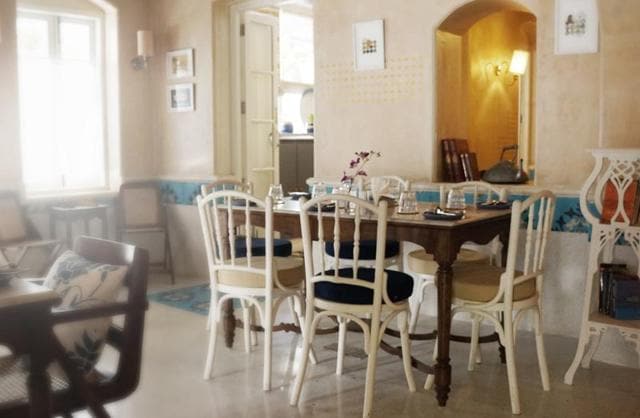
Milky tea’s return to grace
While most of us drank chai — made using CTC (crush, tear, curl, referring to the process) grade tea powder — at home, social gatherings were about savouring a hot cup of lemon or jasmine tea. However, encouraged by an increasing domestic demand for social tea-drinking, chai cafés are cropping up across the city. And Saluja and Verma are not the only ones cashing in on this trend. Bigger players like Hindustan Unilever and Wagh Bakri have also set up their signature tea cafés in Mumbai.
Not too far away from Chaayos is the Brooke Bond Taj Mahal Tea House. Situated in an old white and blue bungalow, this two-month-old tea café already has fans and regulars among the hipsters of the suburb. The space is divided into various sections — a sun room to lounge around in a rocking chair, a living-room-like set up for bigger groups, and a music room where the sounds of Zakir Hussain’s tabla will help you relax.
With more than half of its tea selections dedicated to milky varieties like Irani mint chai and Karipatta Delight (with robust curry leaves), the Taj Mahal Tea House is counting on us to bring our morning ritual out of our drawing rooms. Another draw is the food menu, which can be paired with the teas on offer.
Just like the tea itself, the food isn’t about cookies or scones, but nibbles like idli burger, ragi dhokla and akuri that add a desi touch to the experience. At the Wagh Bakri Tea Lounge in Vile Parle, again, the masala chai comes in a kitschy kettle, and can be paired with mawa cake or a serving of kothimbir vadi (coriander fritters), a Maharashtrian favourite.
At Chaayos, tea can be customised to suit your taste. “Everybody has their preference — some like it with more milk, while some prefer the ‘pani kum’ chai,” says Verma. The chai café also offers add-ons like ginger, pepper and green chilies to be brewed in your tea.
“According to a research by TNS, about 96 per cent of Indian adults drink tea, so it is as universal as water. Yet, a little over 50 per cent of India’s teas are consumed at home,” says Shiva Krishnamurthy, general manager and category head - tea, Hindustan Unilever Ltd. On the other hand, according to the same report, consumption of café-made coffee is as high as 85 per cent, which is evident in the number of coffee outlets.
Even coffee major Starbucks saw this as a positive sign and set up its first outlet in the country in 2012. Since then, it has grown to over 25 locations in the city. However, tea brands are now looking to reverse this trend, or at least attempt to capture a bigger piece of the `6,700 crore organised café market (according to consulting firm Technopak’s 2014 report).
Steeping time and benefits of different kinds of teas
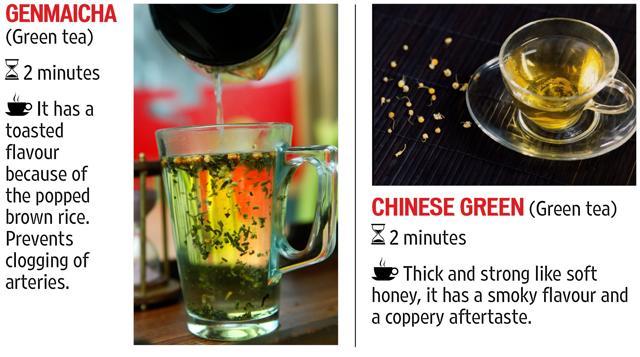
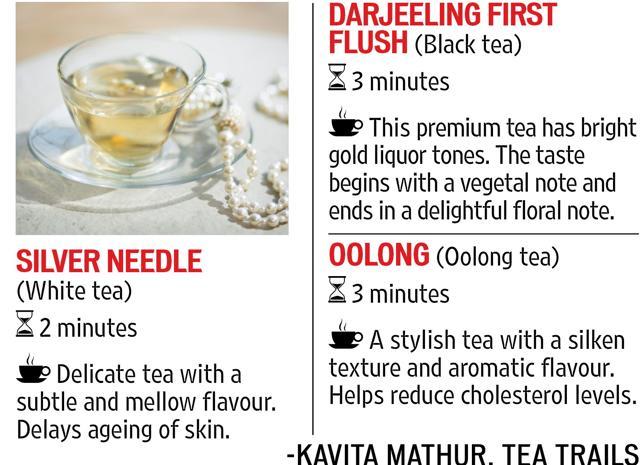
The tea experience
Armed with increased exposure to quality tea and better understanding of flavours, patrons are turning into tea connoisseurs. And in an effort to accelerate this shift, café owners are going that extra mile.
For instance, at Tea Trails in Bandra-Kurla Complex, tea comes in various forms: sangria, bubble tea and variants of flavoured tea like Lapsang Souchong (which, they claim, tastes like a fine single malt) and Genmaicha, a Japanese green tea combined with brown rice. The tea-paired menu features Burmese tea salad alongside house favourites like chole kulcha and rajma chawal.
With upbeat décor and quick, easy meals on offer, co-owners Kavita Mathur and Uday Mathur have successfully managed to lure the office-goers in the area. Each of the speciality teas comes with a card, with instructions on steeping time, temperature of water and tasting notes. For instance, oolong should be steeped for three minutes for it to release its aromatic flavours, whereas green tea is good to consume in two minutes. At Burma Burma, a popular vegetarian restaurant and tea room in Kala Ghoda, an entire wall is dedicated to different kinds of tea served in quirky cutlery. Here, too, tea is accompanied with steeping notes.
“There is a distinct lifestyle shift. Earlier, people would step out for a cup of cutting chai at work, but now they prefer carrying tea bags to office. The demand for green tea and flavoured tea is on the rise too,” says Kavita Mathur, who plans to set up 15 outlets in the city within the next year.
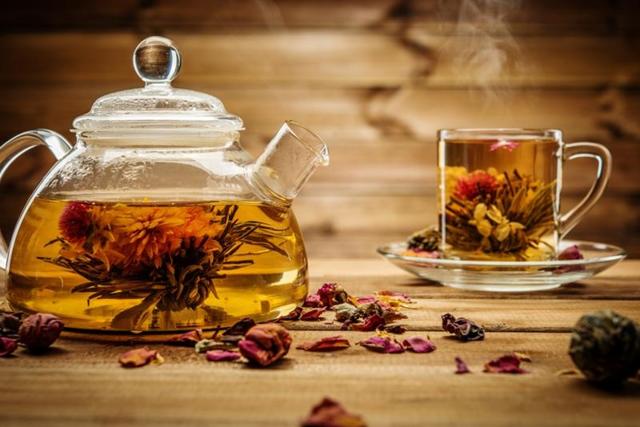
Flavour power
Jay Jhaveri, COO, Foodhall, couldn’t agree more. The food retailer recently launched its own line of teas called The House of Tea. Loose leaves in varieties like Chinese Ginseng Oolong, Egyptian Tisanes and South African Rooibos will be available at the store, apart from tea infusions like lady grey, which combines black tea, Bergamot oil and lavender flowers.
“Even though tea is more a part of everyday life at home, work, on the streets and while travelling, it is still the most underrated beverage in India,” says Jhaveri of its potential. With this new brand, he hopes to recreate the experience of Japanese and Chinese tea-drinking ceremonies, complete with vintage teapots and infusers, which will be on sale too.
At Tea Trails, this tea ceremony is a leisurely activity. A wooden tray with a glass tea maker, a cup, a sand timer and a steeping card arrive at the table. Like baristas at coffee shops, tea experts here are called ‘Teastas’, who explain the tasting notes to patrons. “With increasing exposure through travel and media, people are aware of terms like first flush Darjeeling and second flush (determined by the time when the tea is picked),” says Mathur.
Way ahead
At the recently held World Tea and Coffee Expo in the city, Talvinder Singh of Gourmet Treats, which retails gourmet products like Ceylon tea and spices made a strong case for new age flavours. “The industry for flavoured tea has expanded over 200 per cent in the last couple of years,” according to Singh. Jhaveri is betting on this evolving market. “Tea-making will become more sophisticated. For instance, you will see the use of premium brewing machines, which allow the tea to brew at specific temperatures to attain the right flavour. We will also see usage of tea leaves in food,” he adds.
Some Mumbai restaurants are already ahead of the curve. Burma Burma features a tea leaf salad on its menu and pan-Asian restaurant Nom Nom has a jasmine green tea-smoked chicken dish. At Bluefrog, Not So Old-fashioned is a concoction of chamomile tea-infused Scotch cocktail, and the Darjeeling mojito is Darjeeling tea and cinnamon-infused rum. At Serafina, hot black tea features in its Tea Toddy, a rum-based drink served only on special request.
Coffee, for long, has been considered the aspirational beverage, at least outside of south India. Perhaps, it is time for tea to alter that perception.
QUIRKY TEA INFUSERS
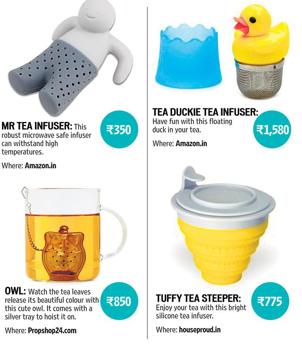
Your guide to tea cafes, and what to try where
Chaayos: Try the Aam papad chai and keema pav
Where: 86, Chapel Road, Near Salt Water Café, Bandra.
Brooke Bond Taj Mahal Tea House: Go for the Parsi mint tea and Arabic falafel chat with tamarind foam
Where: 36- A, Sanatan Pereira Bakery, John Baptist Road, Bandstand, Bandra West
Call: 2642 0330
Tea Trails: Oolong, Chinese green and Japanese Sencha, Burmese tea salad and tea-marbled eggs.
Where: 3rd Floor, Sky Lobby, The Capital Building, Bandra-Kurla Complex
Call: 4005 0115
Tea Centre: Darjeeling blooming tea and kulhad masala chai
Where: 78, Resham Bhavan, Veer Nariman Road, Churchgate,
Call: 2281 9142
The XVII Tea Room: Spiced Guava Tea and Strawberry basil tea
Where: Shop no. 1, Darvesh Royale, Perry Road, Opposite Kotak Mahindra Bank, Bandra West
Tea & Tea: Kashmiri kahwa and hibiscus iced tea
Where: Shop 2, Om Vithoba Rukmani Apartments, Near ISCON Temple, Juhu Road
Call: 98217 00041
Wagh Bakri Tea Lounge: Pure Darjeeling tea and Spinach cheese tart
Where: Hanuman Road, Opposite Jain Temple, Vile Parle East
Call: 90041 87777
Catch your daily dose of Fashion, Health, Festivals, Travel, Relationship, Recipe and all the other Latest Lifestyle News on Hindustan Times Website and APPs.




